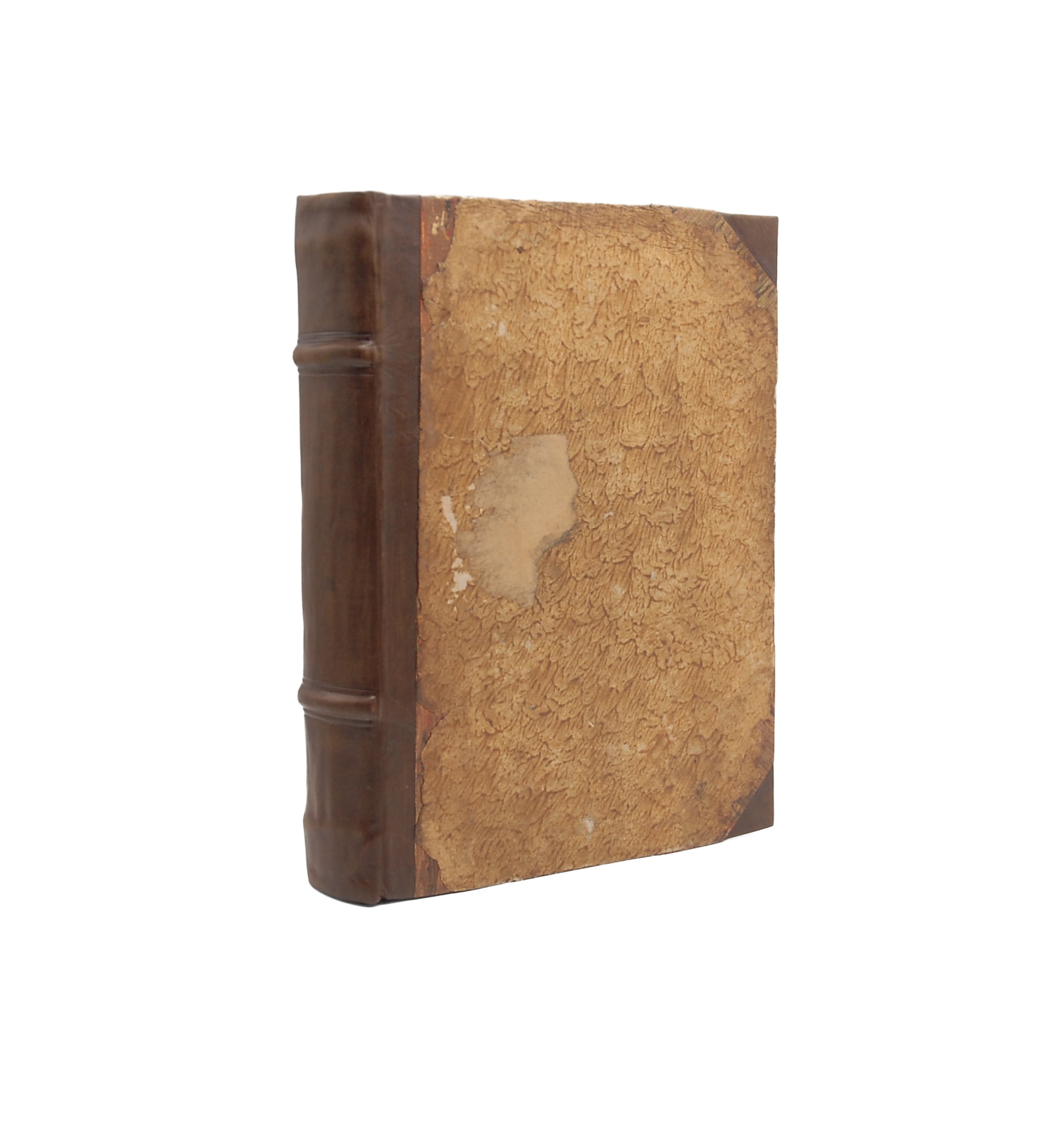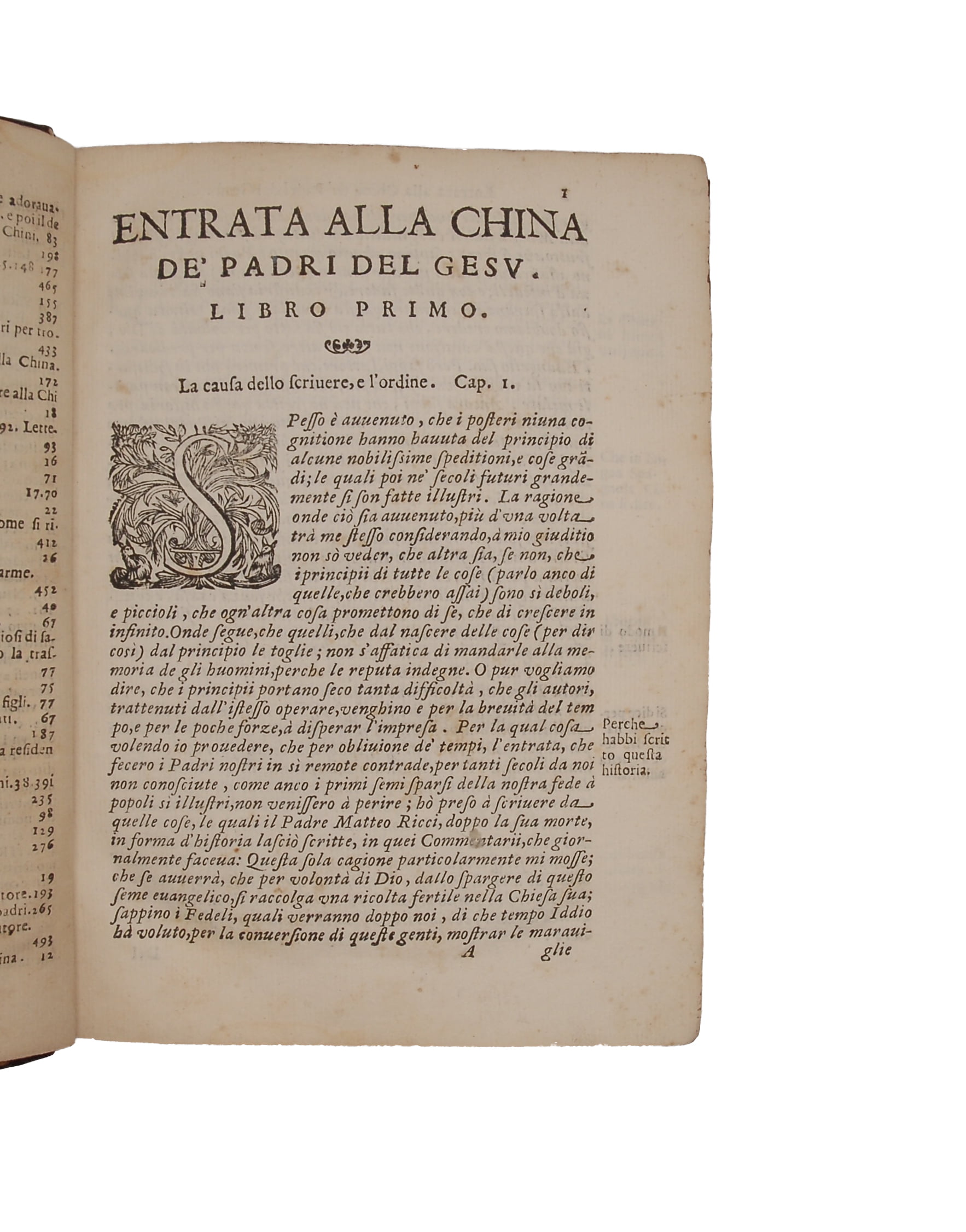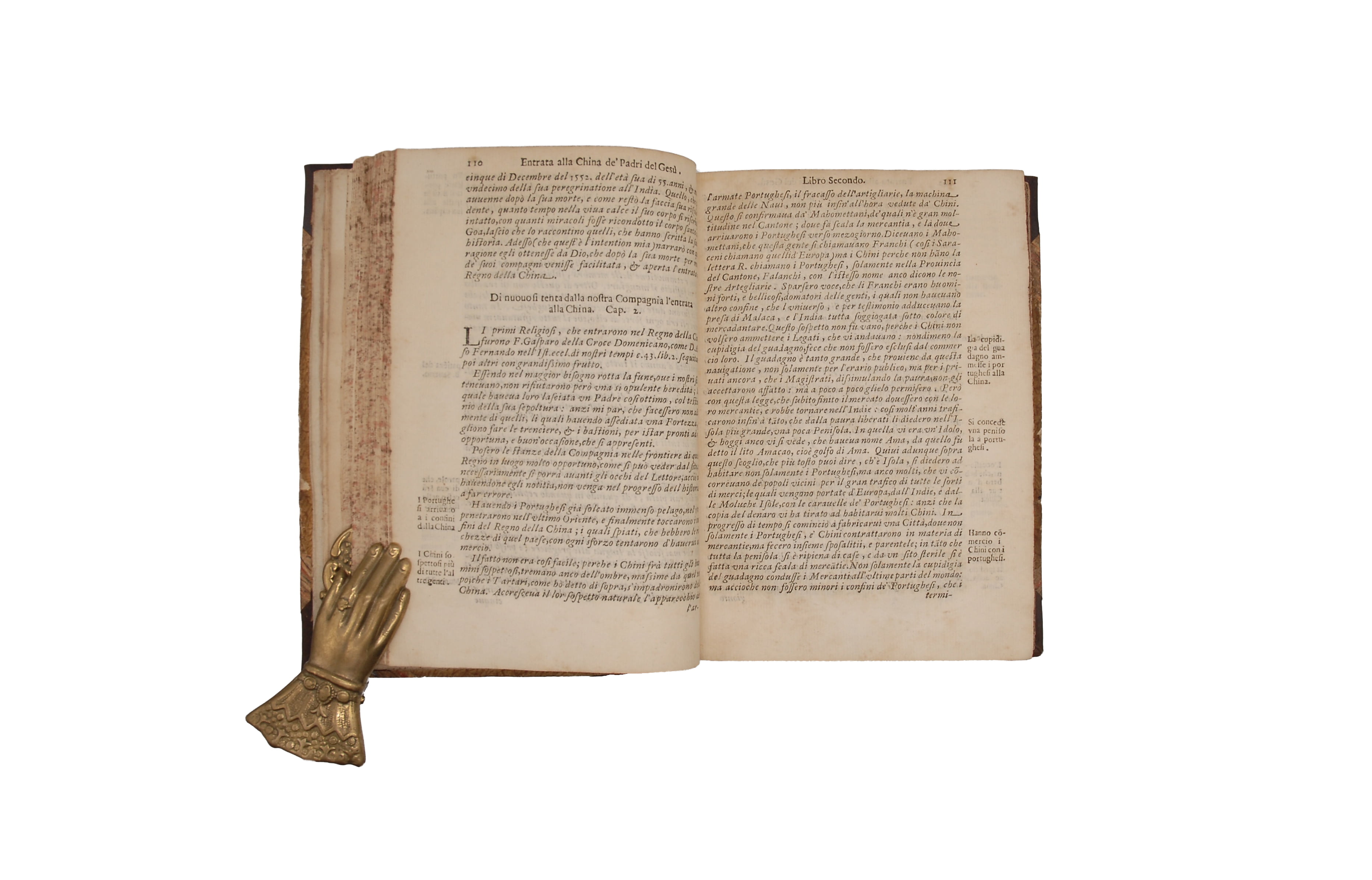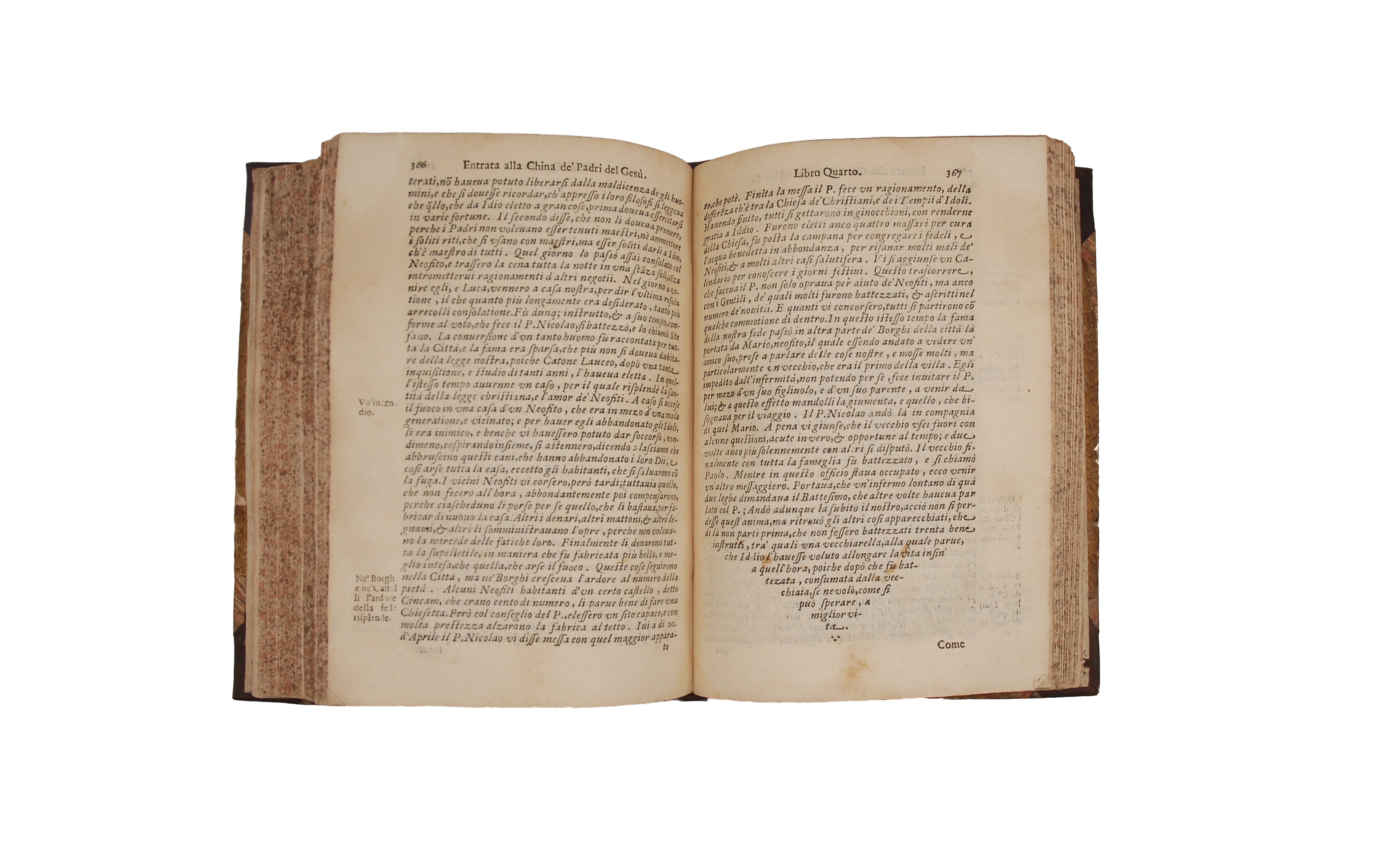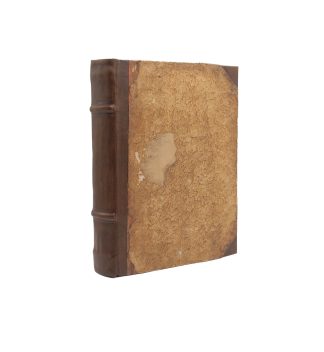RICCI, Matteo
CHINA AT FIRST HAND
Entrata nella China de’ Padri della Compagnia del Gesu
Naples, Lazzaro Scoriggio, 1622£4,950.00
FIRST EDITION thus. 4to. Pp. [xvi] 504. Italic letter, some Roman. Title within fine engraved architectural border with coat of arms, couple of small repairs to edges. C19 stamp of the ‘Biblioth. S. Caroli. Borr. – Semin. Phil.’. Couple of early mss on rear pastedown, one probably a binder’s price, library labels on front pastedown. Mostly light age browning, a bit heavier at beginning and towards end, light marginal foxing to some leaves, small stain to lower margin of one gathering. A perfectly acceptable copy in modern half leather over paper patterned boards c.1700, a bit worn, all edges sprinkled red.
First edition of this Italian translation of ‘De Christiana expeditione apud Sinas suscepta ab Societate Jesu’, one of the most influential accounts of China to appear in Europe in the 17th century. A record of contemporary China and the progress of the church there, it was primarily based on journals written by Matteo Ricci during his time on the Jesuit mission. Originally written in Italian but first published in a Latin translation by fellow Jesuit Nicolas Trigaut, the present Italian translation by Antonio Sozzini is itself based on this Latin translation, as are all other translations, including French, German, and Spanish. This work was found posthumously in Ricci’s Beijing office and subsequently published. The excellence of the historical record and the deep connection and relationship that Ricci had with the country and culture make this an outstanding text, and a unique work for 17th century Europe. Ricci was the first Westerner to live in China for more than a few months, and one of the few to speak and read Chinese at a time when Chinese civilisation was still unknown in Europe; Ricci himself says that all other contemporaneous accounts of China are either based on imagination or on rumour.
Ricci’s text is an encyclopaedic account of late Ming China in five books, and covers its geography, politics, and culture as well as its philosophy and religions. It is an interesting ethnographical document, as Ricci covers the use of bamboo, coal mining and distribution, tea production and drinking, as well as Chinese architecture, music and theatre. For example, he comments on the ubiquity of tea, noting that it is sipped rather than drunk, and always taken hot. He opines that it does not have an unpleasant taste, although slightly bitter. Ricci does not only provide an accurate account of Chinese culture, but also describes the progress of Christianity in China due to the Jesuits’ mission. His approach to Chinese religion as a Jesuit missionary is particularly interesting; he rejects Buddhism and Taoism due to their ‘idol worship’, but shows an appreciation of Confucius, who he reads in a moral rather than religious light, and sees as being in harmony with Christian teachings. Ricci also details the “accommodationist” policy employed in the mission, based on this sense of compatibility between Christianity and Confucianism. This policy required the Jesuit missionaries to learn the Chinese language and understand the culture, rather than attempt to impose Western customs and the use of the Latin language in religious rites, as had been done previously. The text, which gives a broad but detailed overview of contemporary China is of great value as a primary source due to it being based on first hand observations and Ricci’s immersion in the culture, facilitated by his fluency in Chinese and being a resident for 27 years.
Ricci was a scholar as well as a Jesuit priest and missionary, who studied Classics, Law, philosophy and theology, as well as mathematics, cosmology, and astronomy under Christopher Clavius before undertaking the missionary expedition to China.
The Saint Charles Borromeo Roman Catholic Seminary in Philadelphia was founded 1832. The eponymous Charles Borromeo was Latin archbishop of Milan from 1564 to 1584.
USTC 4008419; Backer-Sommervogel, VIII, col. 239, no. 6.; Cordier II 810-811In stock


